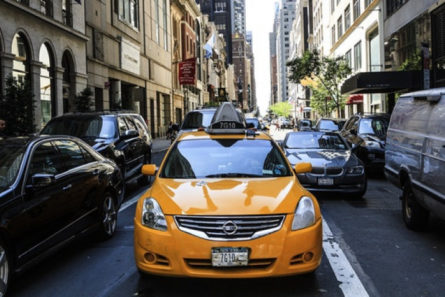Occupational Licensing and the American Dream
James C. Cooper, Koren Wong-Ervin, and Joshua D. Wright

More than a quarter of the American labor force requires a state license to work, a five-fold increase since the 1950s. Occupational licensing imposes restrictions on competition in every reach of the modern economy — with pernicious effects.
According to a report issued by President Obama’s Council of Economic Advisors, such laws have been estimated to cost millions of jobs nationwide and raise consumer expenses by over one hundred billion dollars. The impact is felt most by those who can least afford it. For instance, unnecessary and expensive educational requirements prevent upward mobility, and poor consumers can find necessities from haircuts to plumbing out of reach. What’s more, the patchwork of state licensing regimes poses a significant barrier to practicing one’s occupation across state lines, which can be especially costly to military families.
Self-interested incumbent companies lobby for these laws to keep out competition. Indeed, in many instances, the entity that governs the licensing process is not independent and accountable to the public, but merely a board of appointed practitioners who participate in the same market they are ostensibly tasked with regulating and benefit from keeping out upstart rivals.
Government action to limit the number of competitors operating in a market, or raise the cost of entry by requiring entrants to obtain credentials, increases prices and reduces output for consumers. The harm imposed by occupational licensure is very real. One team of economists estimates in a recent working paper that the introduction of the UberX service — which would be prohibited under a legacy taxi medallion licensing system — generated $6.8 billion in consumer surplus in the United States in 2015.
Of course, not all occupational licensing is bad for the economy or consumers. Occupational licensure is sometimes justified to cure a market failure. And proponents of occupational licensing typically justify such restrictions by pointing to markets that are plagued by information asymmetries that potentially harm consumers.
Asymmetrical information between buyers and sellers is common — and markets often solve such problems without intervention. Social media platforms that communicate consumer experiences quickly and broadly, such as Yelp, allow reputation to play an even greater role in disciplining the marketplace. But not always. When consumers lack the specialized training and knowledge to figure out the quality of service they are receiving, government intervention can sometimes be necessary to assure consumers that providers meet some minimum qualifications. But this narrow exception for occupational licensing doesn’t and can’t possibly explain the strict requirements imposed on interior designers or barbers, for example. A consumer can easily tell if his or her living room looks tacky, and the costs of a bad haircut are inconsequential (or at least temporary). Furthermore, studies consistently find no relationship between licensing requirements and quality even in markets for professional services such as dentistry.
So if occupational licensing requirements are so bad for consumers, why are there so many of them? The answer is that their beneficiaries — incumbent firms that benefit from being insulated from competition and new entry — have strong incentives to promote and maintain these restrictions. And these incumbents are well-organized to pursue this interest. Funeral directors and dentists, for instance, have trade associations that press their interests at state houses across the country. Consumers and potential entrants have no such group.
So is there any way to solve the pervasive and expensive problem of occupational licensing and entry restrictions? Fortunately, a recent Supreme Court decision has made it easier to use antitrust to address the issues. But the reach of the antitrust laws is still limited. The simplest and best approach is for states to engage in smarter lawmaking and regulation by declining to adopt new licensing requirements and revising or abandoning existing laws to reduce barriers to entry. Indeed, the need to reform occupational licensing regimes appears to enjoy wide bi-partisan support. President Obama’s Council of Economic Advisors’ report documented how these regulations can pose serious barriers to upward mobility, and recognized the need to help economically disadvantaged citizens and military spouses. Meanwhile, the current leadership of the Federal Trade Commission has made occupational licensing reform a priority.
In 2016, the Federalist Society joined this effort by launching the Regulatory Transparency Project, which comprises a team of experts in specific fields. The project is tasked with identifying state and federal laws and regulations that harm consumers by unreasonably restricting competition. The goal of the project is to raise awareness and foster discussion on potential legislative solutions to address the significant costs of excessive regulation. The hope is that this endeavor will show that regulatory reform is not a partisan issue; it’s about stopping government at all levels from favoring special interests and depriving the most vulnerable a shot at the American Dream.
This article was also published on Real Clear Politics.

Authors
Associate Professor of Law and Director, Program on Economics & Privacy
Antonin Scalia Law School, George Mason University
Executive Director
Global Antitrust Institute, Antonin Scalia Law School, George Mason University
Topic
The Federalist Society and Regulatory Transparency Project take no position on particular legal or public policy matters. All expressions of opinion are those of the author(s). To join the debate, please email us at [email protected].






